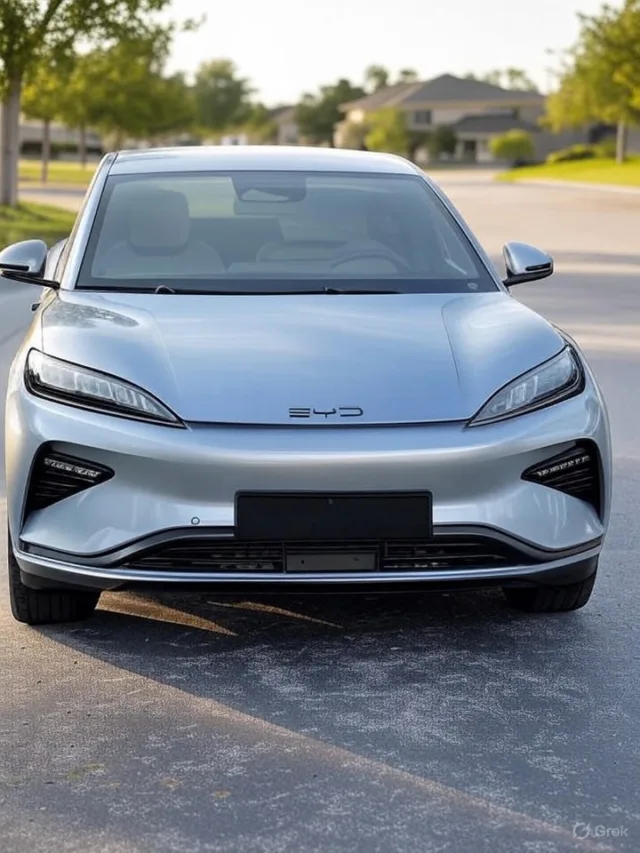
Rising Demand Amidst Security Shadows
In the evolving world of automotive technology, Chinese-made vehicles are capturing increasing attention from American consumers, even as data privacy concerns cast a long shadow. A recent survey by AutoPacific reveals that more than half of prospective U.S. car buyers would consider purchasing a Chinese brand, marking a significant uptick from previous years. This surge in interest comes despite heightened awareness of potential risks associated with connected car technologies, where vehicles collect vast amounts of data on drivers’ habits, locations, and even biometric information.
The allure of affordable, feature-rich electric vehicles from brands like BYD and Nio is undeniable, but experts warn that these cars could serve as conduits for data harvesting by foreign entities. According to a report in Ars Technica, while demand grows, privacy fears persist, with many buyers acknowledging the possibility of data being shared with Chinese authorities under national laws that mandate cooperation with government requests.
Regulatory Scrutiny and Global Responses
Governments worldwide are responding to these threats with varying degrees of vigilance. In the U.S., the Biden administration initiated an investigation into whether Chinese vehicle imports pose national security risks due to their “connected” features, as detailed in a Reuters article from early 2024. This probe highlights concerns over vehicles potentially transmitting sensitive data back to China, including real-time location tracking that could compromise user privacy or even national security.
South Korea has also expressed wariness, with reports indicating growing caution toward Chinese tech and cars due to data-sharing practices. A piece in Chosun notes that Chinese smart devices routinely share user data with third-party firms, prompting calls for stricter oversight in the automotive sector.
China’s Evolving Data Framework
On the other side of the equation, China has been actively refining its data protection regulations, which paradoxically aim to both safeguard information and ensure state access. The Cyberspace Administration of China (CAC) updated rules on car privacy and data security effective from October 2021, as outlined in a blog post from the Future of Privacy Forum. These provisions require automotive data processors to comply with strict guidelines on handling personal information, yet they also embed mechanisms for government oversight.
Further developments in 2025 show China relaxing cross-border data transfers in free trade zones while strengthening personal data protections through compliance audits, according to insights from Reed Smith LLP. This dual approach reflects Beijing’s strategy to foster innovation in the auto industry while maintaining control over sensitive data flows.
Industry Implications and Consumer Dilemmas
For industry insiders, these dynamics present a complex puzzle. Chinese automakers are expanding globally, with firms like Huawei leading in consumer consideration despite privacy qualms, as per recent analysis in InsideEVs. The integration of advanced AI and connectivity features makes these vehicles attractive, but it also amplifies risks of cyber vulnerabilities and unauthorized data access.
Consumers face a dilemma: embrace cutting-edge technology at a lower cost or prioritize privacy in an era where cars are essentially rolling computers. In Europe, Chinese AV firms are pushing into markets amid U.S. bans, facing backlash over subsidies and data concerns, as reported by WebProNews.
Future Pathways and Mitigation Strategies
Looking ahead, experts suggest that mitigating these risks will require international cooperation on data standards and transparency. Automotive companies must invest in robust encryption and user-controlled data settings to build trust. Meanwhile, ongoing U.S. tariffs and probes may limit Chinese car imports, but demand signals a potential shift if privacy assurances improve.
Ultimately, as the global auto market integrates more deeply with digital ecosystems, balancing innovation with security will define the next chapter. Industry leaders are watching closely, aware that data privacy could become the deciding factor in consumer choices and regulatory landscapes worldwide.









